Degenkolb: It was all or nothing in Paris-Roubaix finale
German claims second Monument of the spring
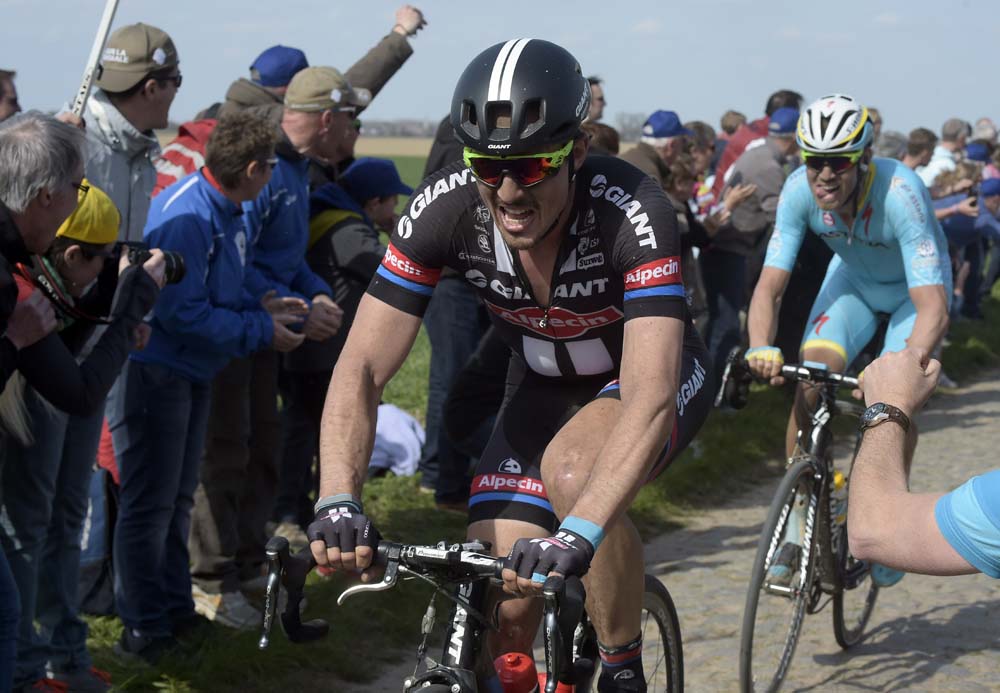
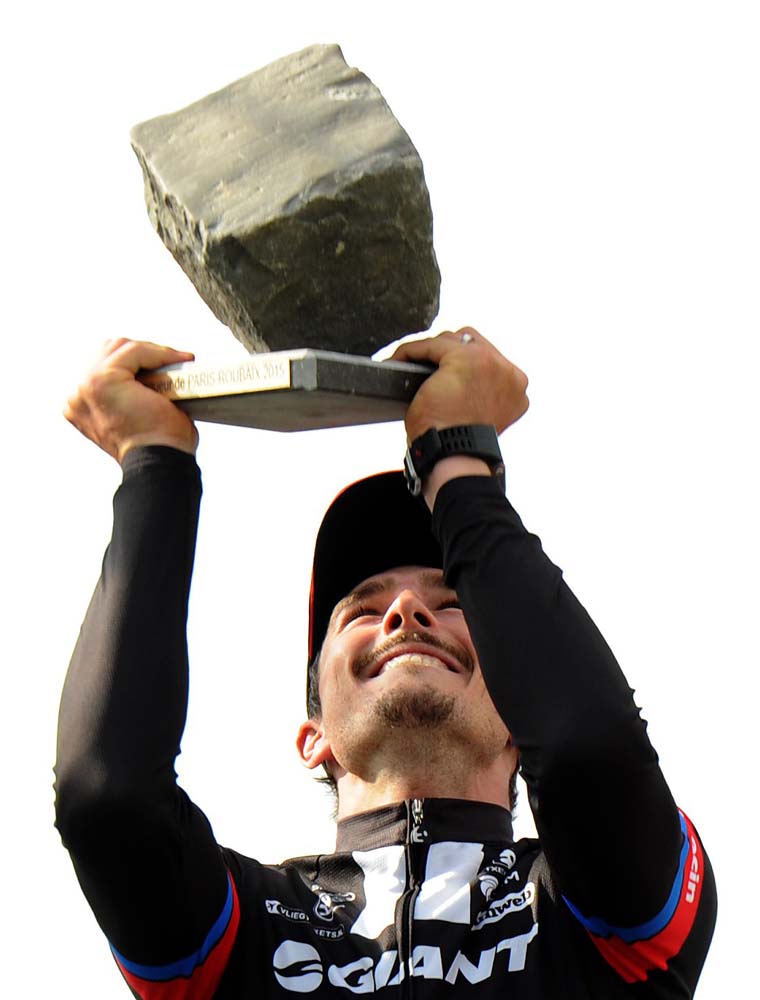
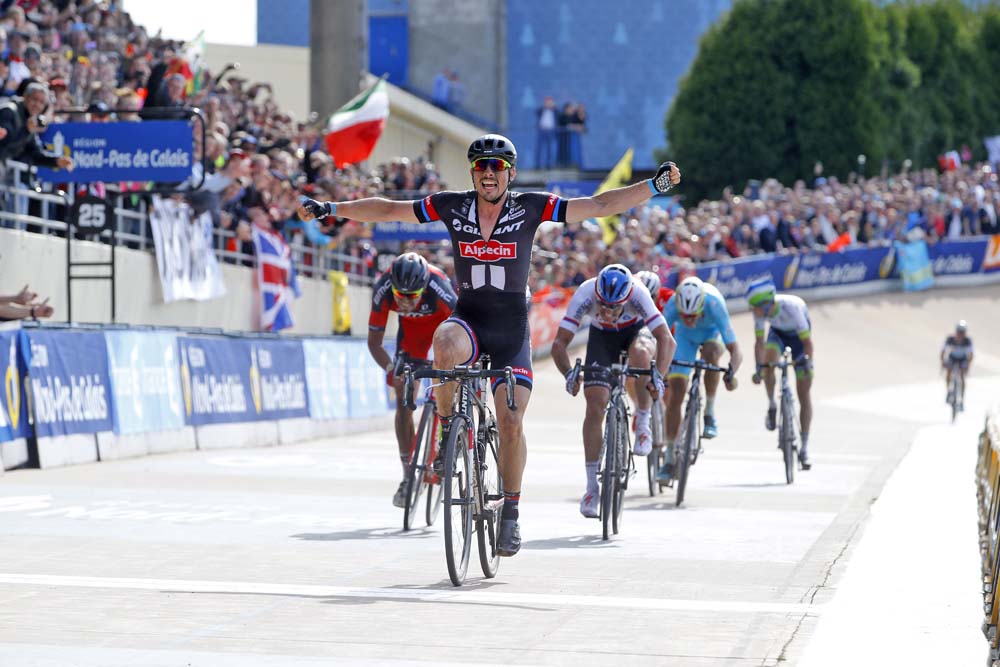
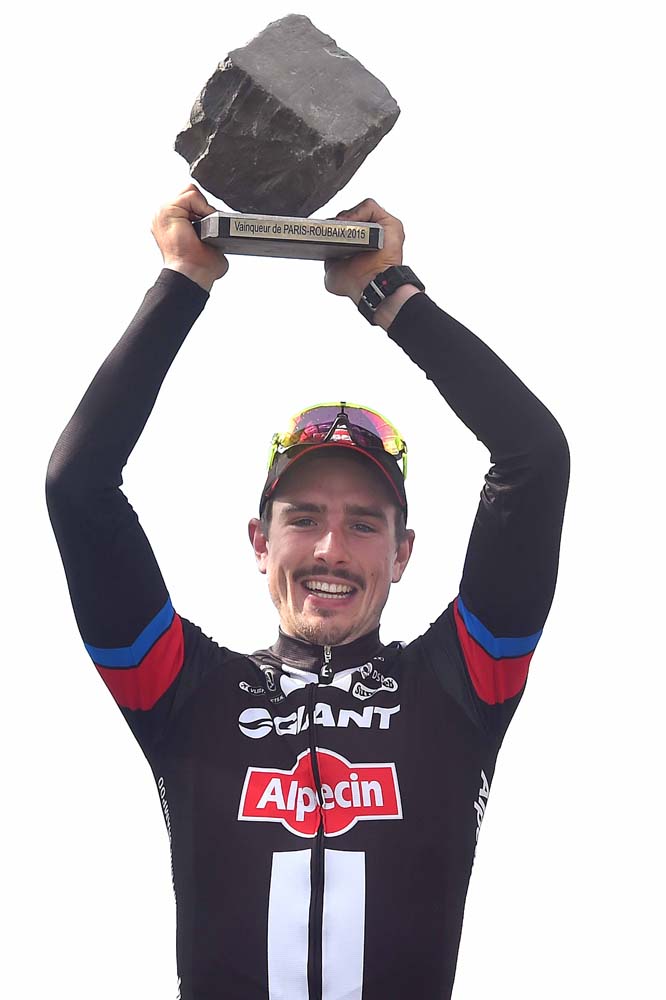
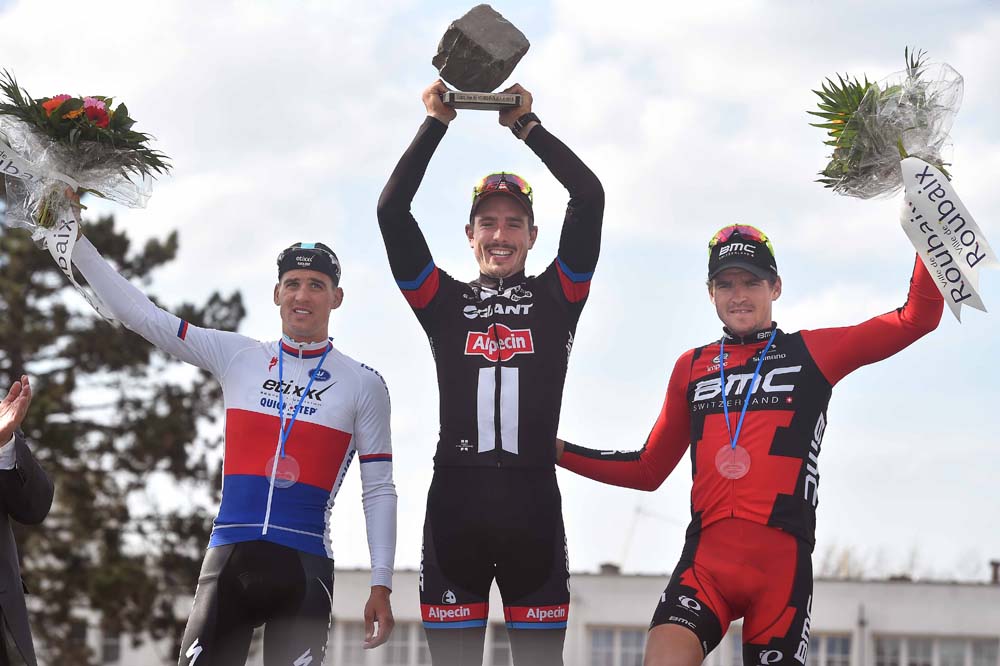
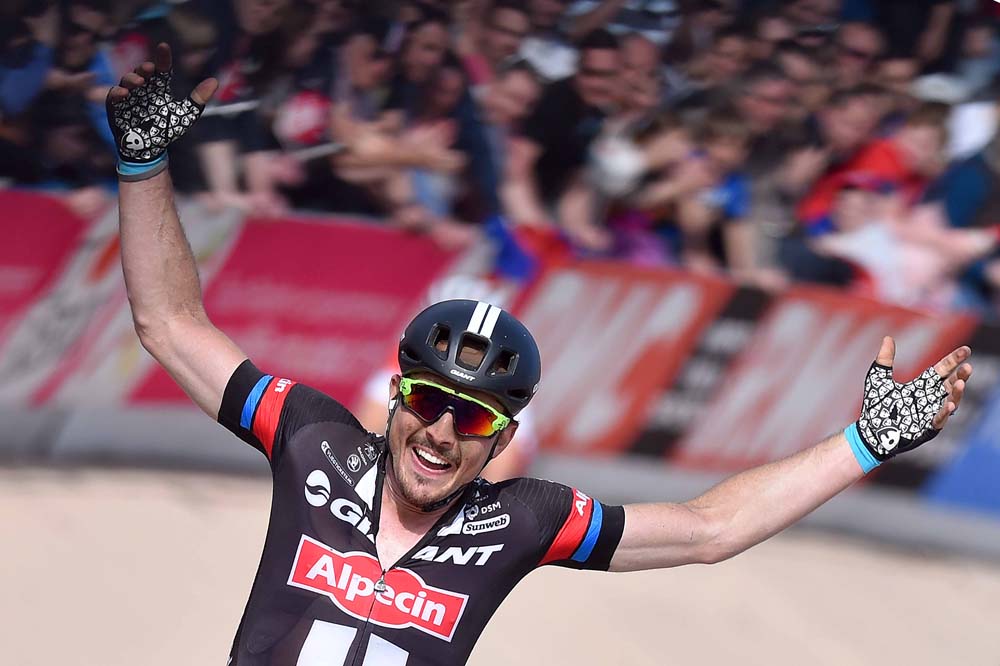
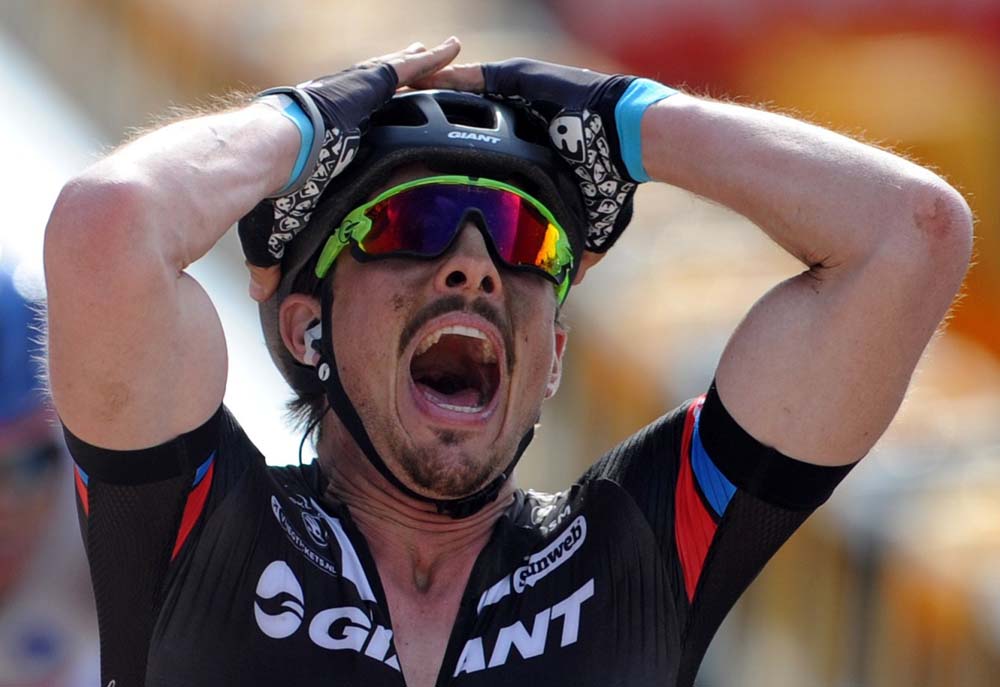
The day before Paris-Roubaix, John Degenkolb told reporters that he didn't need to attack in order to win. As it turned out, he did need to chase, however, and amid the tumult of the final 10 kilometres of the race, that amounted to more or less the same thing.
With late escapees Yves Lampaert (Etixx-QuickStep) and Greg Van Avermaet (BMC) 10 seconds up the road, Degenkolb found himself in an eerily similar predicament to last year. On that occasion, he finished second after finding himself without allies in the chasing group as Niki Terpstra drifted clear. As the kilometres ticked down towards the velodrome this time around, it seemed as though his chance had again passed him by.
One can never step in the same river twice, however, least of all at Paris-Roubaix. Aided initially by Giant-Alpecin teammate Bert De Backer, Degenkolb managed to bridge across alone to the two escapees, and though four more managed to beat a path across in the final two kilometres, the result was never truly in doubt.
"If other riders know you're fast, they don't want to bring you to the finish line," Degenkolb said. "In the end, if I had waited and hadn't gone, my result wouldn't have been better than last year. So I decided, now is the moment – all or nothing. It was 10k [to the finish] and everybody was on the limit in the toughest race in the year by far, but I felt there was still something in the tank."
Not since 1997 had so many riders entered the velodrome together to sprint for the victory, but there would be no Frédéric Guesdon-style upset here. The sprint respected form lines and pedigree, as Degenkolb beat Stybar and Van Avermaet by the proverbial street.
"I sprinted all the way to the line because I didn't want to take any risks," Degenkolb said. "This sprint is totally special and if you haven't done it you've no idea what you're talking about. You try to accelerate and immediately you realise your legs are like gummy."
Two Monuments
Get The Leadout Newsletter
The latest race content, interviews, features, reviews and expert buying guides, direct to your inbox!
Degenkolb's victory means that he is the first man since Sean Kelly in 1986 to win Milan-San Remo and Paris-Roubaix in the same year, two wildly different classics with one very fundamental similarity – perhaps no other races punish the merest errors so harshly.
"Two Monuments, eh," Degenkolb smiled, before silently mouthing an expression that rhymes with 'clucking bell.'
On the Riviera three weeks ago, Degenkolb delivered a flawless performance, riding on the front for a grand total of 50 metres to win ahead of Alexander Kristoff (Katusha). In northern France on Sunday, the German enjoyed his first blessed day in the Hell of the North, with no crashes or mechanical mishaps.
"I think in any kind of way to win Roubaix is very hard. Everything needs to come together," he said. "This was the first Roubaix where I didn't have problems. Every other year I've either crashed or had a puncture, and last year my chainring fell off. Everything needs to be perfect on the bike.
"You need to be mentally prepared. Your shape has to be good. It's a long period from San Remo to Roubaix, but once you're in this classics mode you need to switch from competition to recovery mode and that's what made the difference in the end."
Kristoff had been tipped as the favourite for Paris-Roubaix after his startling recent sequence of wins, including the Tour of Flanders, the Three Days of De Panne and Scheldeprijs. The Norwegian had to settle for 10th here, however, and despite his lengthy unbeaten run, the history books will eventually judge that this spring belonged to Degenkolb.
There is no question, however, that Degenkolb and Kristoff have been the stand-out performers of this early-season. Even before Tom Boonen and Fabian Cancellara's injuries, this was already viewed as a spring of potential generational change, and they seem best-placed to assume the mantle in the years to come.
"We are pretty similar as riders so there will be a lot of chances for us to race against each other again," Degenkolb said. "But it's not just Kristoff and me, there are a lot of young riders who can play a big role. Look at Yves Lampaert, he's only a second-year pro, and what he did today was very impressive."
Degenkolb himself had been earmarked as a future classics star from his very first year in the professional peloton in 2011, when he helped himself to a brace of impressive Dauphiné stage wins with HTC-Highroad. When Bob Stapleton's squad disbanded at the end of the year, however, there was some surprise when Degenkolb opted to sign on for the then-Pro Continental outfit Skil-Shimano. The German's steady progress towards his twin Monument wins has more than justified the decision.
"People looked strangely at me when I went to a second division team but when I look back it was the best decision I ever made," he said.
His decision-making was every bit as good in the finale of a Paris-Roubaix, where he was the strongest, fastest and smartest.

Barry Ryan was Head of Features at Cyclingnews. He has covered professional cycling since 2010, reporting from the Tour de France, Giro d’Italia and events from Argentina to Japan. His writing has appeared in The Independent, Procycling and Cycling Plus. He is the author of The Ascent: Sean Kelly, Stephen Roche and the Rise of Irish Cycling’s Golden Generation, published by Gill Books.